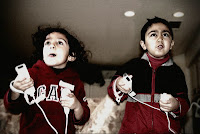By Allan Alach
I welcome suggested articles, so if you come
across a gem, email it to me at allanalach@inspire.net.nz
This week’s homework!
Hattie’s research: Is wrong Part 4 – a kind
of Svengali
NZ educator Kelvin Smythe’s latest posting in his series that
deconstructs John Hattie’s ‘research.’
 “I
predict the Holy Grail label assigned to his research will, given his
personality, prove the death of his reputation pushing him on, to ever extreme
expressions of arrogance and wrongness. If he claims to live by academia but
does not act on it, only great harm will ensue, in the short term, though, that
harm has first fallen on schools. As detailed in past postings, with further
devastating ones to come, Hattie’s research can be
declared rubbish, beyond merit, deep into negative territory. The difficulty in
conveying this truth and having it accepted is that his research is so wrong as
to be difficult to encompass and for readers to believe.”
“I
predict the Holy Grail label assigned to his research will, given his
personality, prove the death of his reputation pushing him on, to ever extreme
expressions of arrogance and wrongness. If he claims to live by academia but
does not act on it, only great harm will ensue, in the short term, though, that
harm has first fallen on schools. As detailed in past postings, with further
devastating ones to come, Hattie’s research can be
declared rubbish, beyond merit, deep into negative territory. The difficulty in
conveying this truth and having it accepted is that his research is so wrong as
to be difficult to encompass and for readers to believe.”
Game Based Learning - the suspension of reality
Another article by Steve Wheeler that raises an
important issue.
 “They
are an important part of youth culture and teachers can no longer ignore
computer games or believe they are irrelevant to education. They are staring us
in the face and won't go away. Our challenge now is to discover how we can
fully harness the power of these kinds of engagement and the potential for new
forms of assessment in formalised settings. Each of these possibilities make
learning through games playing highly motivational, but beyond this, they also
enable learners to explore new ideas, reflect deeply in their actions, and
ultimately, they are fun.”
“They
are an important part of youth culture and teachers can no longer ignore
computer games or believe they are irrelevant to education. They are staring us
in the face and won't go away. Our challenge now is to discover how we can
fully harness the power of these kinds of engagement and the potential for new
forms of assessment in formalised settings. Each of these possibilities make
learning through games playing highly motivational, but beyond this, they also
enable learners to explore new ideas, reflect deeply in their actions, and
ultimately, they are fun.”
Why we should focus on well-rounded young people – not
exceptional grades
“… there
needs to be a balancing act between academia and developing essential traits
crucial in the real world. They say knowledge is power but what use is
knowledge if children haven’t developed their
character in a way which allows them to actually use their knowledge
successfully?”
When Kids
Decide What They Read, They Read More
Really? Who would
have thought it?
"This
simple intervention allowing students to choose their own books at [the] end of
the school year had a significant positive impact. A multifaceted approach is
needed to address poor child-literacy rates, but this intervention can be part
of the solution.”
Why the
attempt to make reading simple? A reply to Learning to Read: Should We Keep
Things Simple?
Powerful article
by Ken Goodman - a must read.
“There’s no way to make language learning simple. But there is an easy way
to help children to learn to read. It is to make the way they found it easy to
learn oral language work for them in learning to make sense of written
language.
Written language is learned just as oral language is
learned- in the process if using it.”
Deficit model
in education: a dangerous conceit?
“The illusory
maths deficit is the leaning tower of PISAs awful legacy, branding education as
a failure and wiping out huge swathes of useful knowledge and skills in favour
of illusory benefits.”
And:
“If only more
people had more certificates, more degrees, more paper qualifications, we’d live in a utopian paradise of massive productivity and wealth.
Sorry, it doesn’t work that way. As more and
more people get bits of paper, those bits of paper become commoditized and
worth less.”
Featuring…… Finland
of course…
“First, arts
subjects are essential if we think in terms of personal development. The arts
are essential tools to increase self-awareness and understanding of your own
and other's experiences; the arts are a means to understanding emotions and the
emotional aspects of life; the arts are also essential tools in
self-expression.”
Lessons from neuroscience
“Yesterday
I had the privilege of meeting Andrew Curran who delivered a two hour session
on the brain and the lessons we can learn from neuroscience to inform our
practice in the classroom. In this post, I wouldn’t dream of trying to replicate his vast knowledge, but thought I’d share some takeaways that might inform what you do. Please note, I’m not an expert, and this is my
interpretation of what he said.”
This week’s contributions from Bruce Hammonds:
Inquiry in the
Classroom: 7 Simple Tools To Get You Started
“Why Use the
Inquiry Cycle?
Often used by
science professionals to work through problems and research, an inquiry-based
approach, or inquiry cycle, is also used in classrooms for scientific and
non-scientific topics to encourage students during the learning process. In an
inquiry-based approach, teachers help students generate their own appropriate
questions and guide the investigation.”
Eudemic:
Connecting Education and Technology
Bruce’s
comment: Many teachers use the Edutopia(with its focus on project based
learning) devised by Star Wars director George Lucas. Edudemic
is another rich resource for schools integrating technology into their
classrooms. Edutopia’s focus is on project based
learning.
 |
| George Lucas |
Edutopia:
Vision and Mission.
Bruce’s
comment: Read about Edutopias brilliant vision.
“Our vision is
of a new world of learning based on the compelling truth that improving
education is the key to the survival of the human race. It’s a world of creativity, inspiration and ambition informed by
real-world evidence and experience.”
Are field trips a good way to spend
school district funds? Kids say ‘yes’
 |
| Students on a field trip |
Bruce’s comment: A
school district in California rediscover the value of field trips - will
wonders never cease!!!!
“It was not abundantly clear that the trip had been a success.
Certainly, no one was excitedly explaining how she’d just had an insight into how sound waves work; nor going on about the
properties of simple pulleys; nor plotting the invention of an improved
slow-motion camera.”
Sir Ken Robinson's new book: 'Creative
Schools - Revolutionizing Education from the Ground Up’
“A must read for anyone who believes in an education system that aims
at developing the gifts and talents of all students. My plea is for creative
teachers, particularly those in New Zealand, to share this with as many
teachers and schools as they can because the message is so important. If we
really believe in giving every student the opportunity to leave formal
education with their love of learning intact and with
all their unique gifts and talents identified then we really have no choice.”
From Bruce’s ‘goldie oldies’ file:
The killing of
creativity by the technocrats.
Not to be outdone
by Kelvin, here’s an article Bruce wrote back in 2009, that also casts a skeptical
eye over John Hattie.
“John Hattie,
professor of education Auckland University, confidante of the present Minister
of Education. Is his influence undermining the creativity of our teachers?
Kelvin Smythe thinks so and, after visiting a number of classrooms, I have to
agree with him. Read Kelvin's full article on his site.”
And:
“Somehow, just
because Hattie has amalgamated every piece of 'school effectiveness' research
available ( mainly it seems from the USA) his findings, it seems, ought to be
taken for read. The opposite ought to be the case - we need to be very wary of
such so called 'meta research.'. More worrying however is that the approaches
he is peddling is pushing into the background the home grown innovative
creative learning centred philosophy that was once an important element in many
classrooms.”
What is this
thing called learning?
 What is this
thing called learning. It seems simple enough. So why do so many 'learners'
fail at school? Dysfunctional schools or dysfunctional learners?
What is this
thing called learning. It seems simple enough. So why do so many 'learners'
fail at school? Dysfunctional schools or dysfunctional learners?
“Many teachers
draw on their experience, common sense, and professional knowledge as the basis
for their teaching. What is sometimes missing is a ‘shared
language’ of what learning is across a
school so teachers can, talk to each other, their student’s parents, and also to hold themselves accountable.”
“If children
are always asking questions then ought not our classrooms help them in their
search for answers?
That we
haven't yet created schools based on assisting students research their own
questions and concerns just goes to show how much 'our' curriculums, what 'we'
think is important for them to learn, has ignored the source of real motivation
for students to learn.”
Fundamentals
in education
Maybe it’s time to reflect on what is fundamental in education.
“So what are
the fundamentals of learning? It is too simple to fall back on the default mode
of literacy and numeracy indispensable as they obviously are. The real basics
of learning are: perceiving, thinking, and forming and the tools to make use of
these faculties are words, numbers and shapes.”












No comments:
Post a Comment